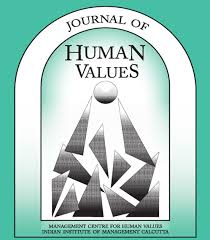My paper on “How to Renew Business Ethics Education?” was published in Journal of Human Values in 2024 August.

The paper argues that business ethics education is losing credibility worldwide. This is partly due to the experience that teaching ethics in business schools does not necessarily help future professionals to be more ethical in business. The article suggests that business ethics courses should be renewed both in contents and pedagogy. It advances a position that business ethics education is much needed in business schools as they can give room for both students and faculty for transformational learning and moral growth.
There are several methods and tools which can be used in business ethics education to help the students to become reflective, ethics-oriented practitioners who are inclined to serve the greater good of society and to restore the ecology of the planet. These methods and tools include but are not limited to the following:
(i) Experimental teaching (using moral dilemma decision-making exercises to enhance moral imagination)
(ii) Cross-cultural teaching (always referring to the cultural biases of any given business praxis)
(iii) Whole systems teaching (exploring the wide range of stakeholders, including nature and future generations)
(iv) Critical teaching (making explicit the hidden assumptions of problem formulation)
(v) Existential teaching (defining management problems in terms of self and identity)
(vi) Teaching new business models (that conjointly serve human flourishing and ecological regeneration).
A variety of extracurricular activities can provide further opportunities for transformational learning in business ethics courses for students (and also for faculty). They include using innovative art forms (e.g., psychodrama), working with progressive social and business enterprises, engaging in meaningful community projects at home and abroad and making field trips to get first-hand knowledge about non-Western, non-consumerist cultures and socio-economic practices (e.g., Indigenous ones).